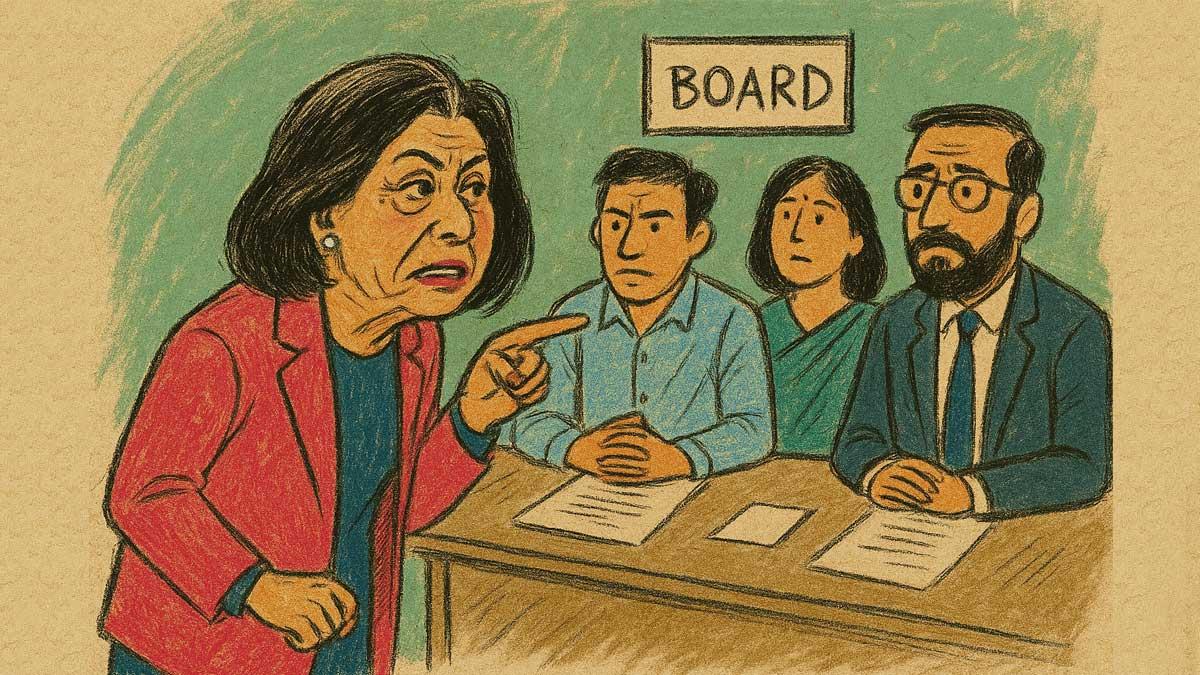When shorts are based on perceived corporate mismanagement or malfeasance, as in cases like Enron and Satyam, they enable the financial system to work efficiently, points out Devangshu Datta.

Illustration: Dominic Xavier/Rediff
The Viceroy-Vedanta affair that is currently news has similarities with the Hindenburg-Adani affair.
In both cases, an overseas entity went short on a well-known group, and released reports explaining why.
I’m not here to discuss the merits of the reports. It’s up to traders who wish to take exposures (long or short) to make their own judgements.
There are other interesting points one can make. The strategy of taking a position and then publicly revealing the position, and talking up the rationale is not new.
Long investors have been doing this for over a century. In the early 2000s, short-sellers like Mark Cuban also started employing this strategy.
The difference is that they started telling the world why they had sold a stock.
The logic for revealing exposure is the same: The hope that more money piles into the trade, and creates momentum to move the price quickly in favour of the early bird.
It’s a creative use of the concept of disclosure.
One key difference in the 21st century is the scale of amplification. The media reach of any random trader is much more.
The subreddit Wall Street Bets (WSB) is an extreme example of reach.
WSB hosts millions of retail traders and some of them are very savvy. WSB is unusual in that the research is often of high quality.
Successful traders who use WSB and publicly announce their positions along with the rationale have inspired millions of followers who enthusiastically mirror their trades.
The money can run into the billions. On several occasions, hedge funds have been rendered bankrupt by the concerted retail action on WSB.
Of course, on countless occasions, retail traders who mirrored positions without knowing what they’re doing have also been wiped out.
While WSB is the largest public forum for traders, it is not the only one. There are countless groups on all sorts of platforms where people discuss trades and seek second opinions on their views.
And yes, those forums are also places where ‘pump and dump’ schemes, and other scams are enabled.
But surely it’s up to any trader to do their own due diligence before taking a trade on the basis of a social media tip, or TV channel recommendation, or random research report?
So much for the modus operandi of taking a trade and then publicly talking about it and revealing the underlying logic.
A deeper point is that this practice can’t be stopped. Right or wrong, if somebody decides to take a position, long or short, and talk about it, they have a right to do so.
They may be sued if they vilify the company or its management, and they may lose a lot of money if they’re wrong in their logic.
But they have the right to hold an opinion and to air it. And so long as they’re trading through legal channels, they have the right to lose money — or make it.
Both these cases have also led to a lot of absurd nationalistic heartburn: Why were Indian businesses targeted by foreigners, for instance, is a question that’s been asked.
The answer is, those specific businesses were perceived as being vulnerable.
This is the flip side of the equation when economies and markets are opened up to allow overseas investors to buy shares and subscribe to bonds; you must live with the fact that foreigners may also sometimes sell shares and bonds.
It cannot be one-way traffic.
Short-sellers receive a lot of opprobrium. Regulators hate them. They operate under inherent mathematical disadvantages.
A share can double or quadruple or multiply tenfold.
So the upside is unlimited for a long investor. But a share can at worst, drop to zero value, and that limits the short-seller’s return.
Obviously, leverage and the use of derivatives can overcome this to an extent but taking recourse to those, adds to the risks as well.
Short-sellers perform a useful task when they put a spotlight on overvaluation. Those who identified the ‘Big Short’ in US housing mortgages, helped warn others.
When shorts are based on perceived corporate mismanagement or malfeasance, as in cases like Enron and Satyam, they enable the financial system to work efficiently.
Shortselling is the obverse of value investing in that sense. There should be room for short-sellers in any well-run market.
Feature Presentation: Aslam Hunani/Rediff



